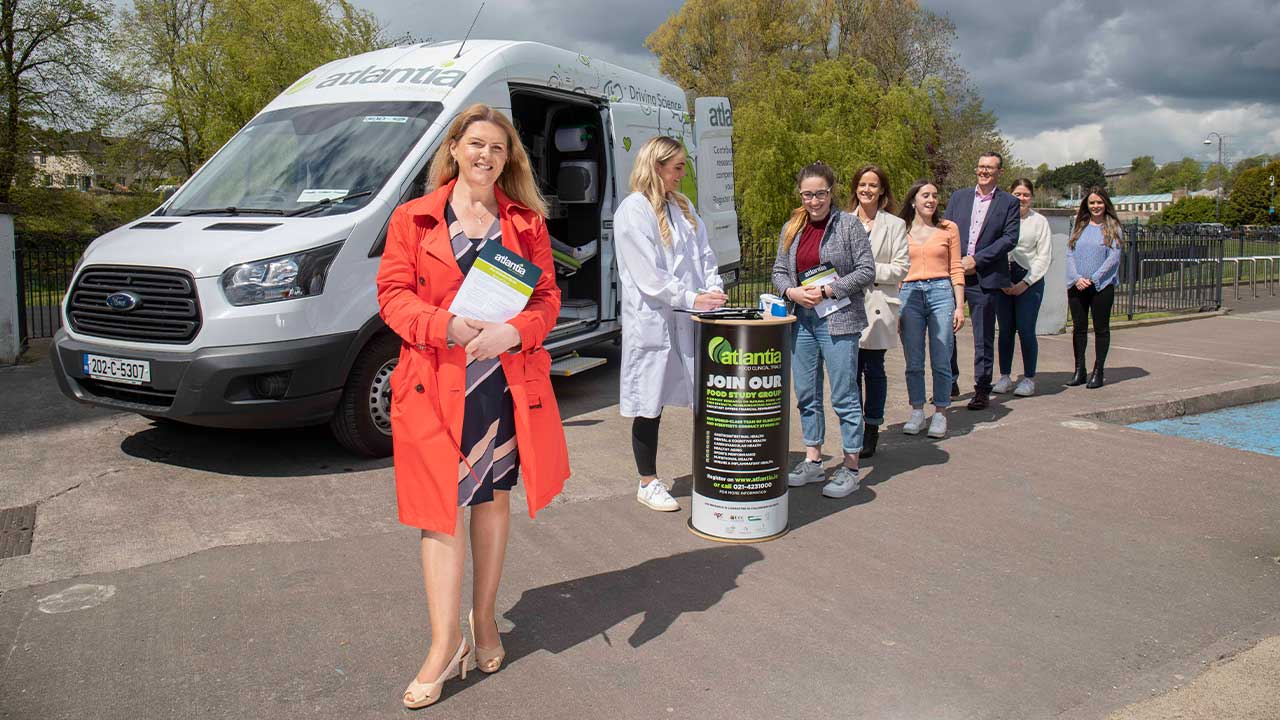To conclude this series of commemorating Atlantia’s 10 years in business, it is fitting to shine a light on the future of Atlantia and clinical research. We have gathered a compilation of various insights from different key figures in the research field. These include: Prof Ted Dinan- Atlantia's Medical Director, Barry Skillington- Atlantia's CCO, Claire Tansey- Atlantia's Director of Operations, Prof Fergus Shanahan- Consultant gastroenterologist/ Atlantia Advisor, Prof Paul Ross- Director of APC Microbiome. As a forward-thinking company, we endeavour to drive forward our clinical trial capabilities in line with the changing market needs.
Clinical research as a growth facilitator in the food industry
As we look into Atlantia’s trajectory we can see the potential for positive advancements and growth. The clinical landscape in which Atlantia is present in is ever changing and there is constant need for evolution. Prof Ted Dinan, Atlantia’s Medical Director highlights the fact that the regulation of supplements is increasing in both Europe and the USA.
“With increased regulation and with a strong track record in food and supplement research, Atlantia CRO is ideally placed to take advantage of the changing landscape”.
There is a rise in the demand for scientifically validated products which has been driven by the consumer trend towards ‘wellness’. Evidently, the consumer base is becoming far more educated and are “driving the need for validation” through clinical research. Barry Skillington, CCO at Atlantia claims that consumers “want to see the foods and functional foods they eat delivering more in terms of their overall health, successful ageing and cognitive health”. This has an impact even for the marketplace. Ted shares how “going forward, many of our clients with supplements wish to move to the high-value end of the market”. This high value end is in fact the clinical trial backed products, many naturally occurring products, yielding data acceptable to FDA and EMA for regulatory approval as pharmaceutical products. Therefore, clinical research is becoming increasingly relevant.
If we reflect on the current trials in our clinical pipeline, we can observe the health trends that are relevant now and that will drive future research.
Role of future clinical research trends

The future healthcare challenges will determine the types of trials that the company will conduct in the future.
The clinical trial team at Atlantia see a greater focus towards providing health benefits to the ageing population. Claire Tansey, Director of Operations at Atlantia outlines,
“The studies that we conduct at Atlantia are very much focused on well ageing as our populations are living longer and we want to live longer, more healthy lifestyles”.
Sally Cudmore, Director of Innovation at UCC reinforces this idea. “As the population becomes older across all of society, across the whole world, there’s an increased recognition that a healthy diet can slow down some of the effects of ageing”.
The Microbiome space has and is continuing to make promising discoveries. Sally Cudmore outlines other factors are affecting the human microbiome and thus may be leading to heightened importance of Microbiome based therapies to improve one’s health. “There’s a big change in the immigrant populations and that is having an interplay on how their habitual diet is affecting microbiome composition”. Prof Fergus Shanahan, Gastroenterologist outlines how microbiome readouts, microbiome-based therapies and preventative strategies will be more important in the future. This trend is responding to an increased concern by the scientific community about Antibiotic Resistance.
Sally outlines how she sees an increase in the desire for products around mental health. This area is continually rising from multiple different angles, from supporting cognition both at the early stages of life in infant formula and at the later stages of life, slowing down cognitive decline. In this health area of focus she highlights the link between the brain and gut axis. Prof Dinan Atlantia’s Medical Director and one of the precursors of this field of research, supports Sally’s views as he sees great potential for effective probiotics and psychobiotics therapies intreating mild forms of depression.
There is a strong focus on preventing or alleviating inflammation in the area of ageing. Prof Paul Ross highlights the potential of precision medicine, whereby you look at the diet, the microbiome and the efficacy of drugs. He highlights how this is a particularly prominent area in gut inflammation and cancer research.
Atlantia’s views on the future of Clinical Trials
Clinical research is continually evolving. Prof Shanahan outlines how “clinical research will continue to adopt science as the way of doing business and will continue to adopt rigorously controlled clinical trials as the way of establishing evidence”. He predicts for a change in trial duration, for longer term studies with smaller number of subjects assessed over time with greater detail. He also outlines the process of defining and stratifying individuals for various phenotypic features and doing studies on certain types of conditions, on certain types of individuals, and making therapies and preventative strategies based on this.
The format in which trials are being designed and conducted is changing. Decentralised trials or adaptive trials are hot topic areas at the moment. Claire anticipates this for the future. “I would like to see us move towards a more decentralised trial model and also investigate remote trials to enable a broader reach and more participants to take part in our trials”. Barry shares his views on how companies are utilising technology to facilitate the running of remote trials. Technology in the form of wearable devices is be included to pick up clinical data point of care testing. This equipment can be sent to a participant’s home and data can be collected through wearable detectors. Apps and smartphones are driving the remote clinical data forward.
“We are constantly looking at new ways of managing and capturing data to ensure we have the most efficient process in place by working with our sponsors”- added Barry.
Atlantia’s future clinical research strategy
The management team at Atlantia outlines the future strategy plans for Atlantia. Claire Tansey, Director of Operations expresses how Atlantia has always had “a keen eye on continuous improvement so that we can scale and grow in the most efficient way”. Since joining Atlantia, she has reinforced a strong forward-thinking strategy into the business. This section shall outline areas of focus for the company.
The clinical research team growth
As mentioned in The Team article, we can see the significant role that the Atlantia team makes to the business. The current strategy and operations of Atlantia is very much focused and enabled by them. Evidently, this facilitated the development of Atlantia over the past 10 years and will continue to support the evolution into the future. “We really want to invest in the team here as people really are the centre of our growth at Atlantia and are a very important part of our strategy”- commented Claire.
Diversifying study populations

There is significant opportunity to expand the company’s clinics. As the Chicago clinic only launched in 2019,there is still significant room for expansion.
Atlantia’s move to Chicago enables the possibility to expand the company’s clinic sites to new locations to meet new markets and participant populations. Currently the company has many clients across the world. The opportunity is present for Atlantia to expand its clinic portfolio further.
Integrating new phases of the product development process
The company has potential to grow its service offering. There is always the potential to venture into the area of consumer research and market research. The clinical trial project is only a small proportion of our client's product development journey. Barry Skillington, CCO highlights that “We’re developing those portfolios to help our clients in an even broader sense in their product development journey”. At the end of the day the business is very customer centric.
After 10 years of experience conducting clinical trials, Atlantia has built up the reputation of being a leading CRO. However, there is always room for expansion. Barry Skillington, CCO outlines his future vision for the company from a commercial perspective.
“My vision for Atlantia is to become a household name, that our clients and future clients just automatically go to us when they require top notch GCP level clinical research”.
To conclude, we can see the enormous future potential for Atlantia in the different areas of clinical research. The landscape in which Atlantia is present in is continuously evolving. The way in which we perform clinical studies will be improved with more experience and technological advancements in this space. As mentioned, Atlantia’s future strategy will help to drive overall success and prosperity to the company.
This leads us to the end of our 10-year anniversary series. We thank you for tuning in each week and hope you gained insight into where the company began, where it is at today and where it will be soon. We welcome 10 more years of success!


